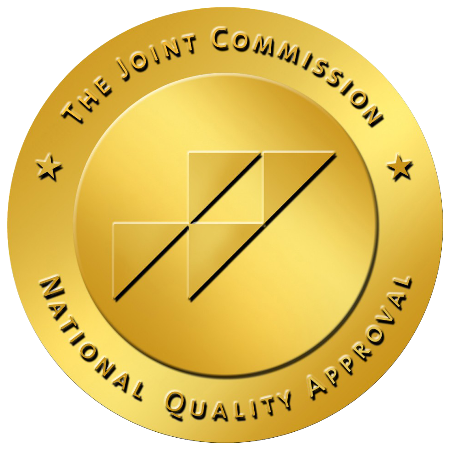Restoril, known generically as temazepam, is a prescription drug classified under the group of drugs called benzodiazepines. Doctors commonly prescribe it to help with short-term sleep problems, especially insomnia. While it can be an effective treatment, Restoril carries the risk of side effects, abuse, and dependence, potentially leading to addiction.
What Is Restoril?
Restoril, or temazepam, is a central nervous system (CNS) depressant that belongs to the benzodiazepine class of medications. Benzodiazepines like Restoril enhance the effects of gamma-aminobutyric acid (GABA), a neurotransmitter that promotes relaxation and reduces neural activity. This mechanism helps to induce sleep and calmness, making it effective for treating insomnia. Restoril is a Schedule IV drug that can be addictive and lead to dependence if misused.
Restoril is a schedule IV-controlled substance, meaning it is less likely to be abused compared to drugs in Schedules I to III. It can still lead to significant health issues if not used according to medical guidance. Restoril can be very dangerous if taken in high doses or with alcohol or opioids. This can make its effects stronger and increase the risk of overdose.

What Is Restoril Used For?
Restoril is mainly used for short-term treatment of insomnia in people who struggle to fall asleep or stay asleep at night. It is usually used for short periods, not more than two weeks, because the risk of physical dependence increases with longer use.
Restoril is primarily used to treat insomnia. Doctors may also prescribe it for anxiety disorders, although this is less common. Other medications are often preferred for long-term anxiety treatment.
Short-term use of Restoril is important to reduce the chance of the body getting used to the medication. As people become more tolerant, they may need more medication to feel the same calming effects. This can increase the chance of becoming dependent or addicted.
Restoril is not recommended for people who have a history of substance abuse. It is also not suitable for those who may be at risk of developing these issues.
In clinical practice, Restoril’s use is carefully monitored to avoid complications. Doctors often suggest taking the smallest dose that works.
They also advise against using the drug when you need to be fully alert, such as when driving or using machinery. This warning is because the drug can still affect thinking and movement. These effects can last even after the main sedative effects have worn off.
Side Effects of Restoril
While effective for sleep disorders, Restoril can cause a variety of side effects, some of which may be serious. Common side effects include:
- Drowsiness and Sedation: This is the drug’s intended effect, but it can impair daytime functioning if the medication’s effects linger.
- Dizziness and Lightheadedness: Users may feel unsteady, especially when getting up from a sitting or lying position, increasing the risk of falls.
- Coordination Problems: Impaired motor skills can make tasks that require fine motor control, such as driving, dangerous.
- Memory Issues: Short-term memory impairment is common, especially with higher doses, and some users may experience amnesia for events occurring while under the influence of the drug.
- Respiratory Depression: This can be a life-threatening side effect, particularly in cases of overdose or when combined with other central nervous system depressants.
A significant side effect is sleep driving, in which people drive while not fully awake and forget they did it. It is important to use Restoril only under medical supervision. Avoid activities that require full alertness until the drug’s effects have completely worn off. This will help prevent dangerous behavior.
In some cases, people may experience paradoxical reactions, where the drug causes agitation, irritability, or heightened anxiety instead of calming effects. These reactions can be particularly troubling and may require immediate medical attention. The risk of these side effects increases with higher doses and longer durations of use.
Long-Term Side Effects of Restoril Abuse
Long-term abuse of Restoril can lead to severe and sometimes irreversible health consequences. One of the primary concerns is the development of tolerance and dependence, where the user becomes reliant on the drug to function normally. Over time, the body adapts to the presence of the drug, requiring higher doses to achieve the same effect. This increase in dosage can lead to:
- Cognitive Impairment: Chronic use can impair cognitive functions, making it difficult to concentrate, remember information, or make decisions. These effects can persist even after discontinuing the drug.
- Emotional and Psychological Issues: Long-term use can exacerbate existing mental health issues or lead to new ones, such as depression and anxiety. The emotional instability can make it challenging to manage daily life and relationships.
- Physical Health Risks: Prolonged use of Restoril can strain vital organs, particularly the liver and kidneys, which are involved in metabolizing and excreting the drug. Over time, this can lead to liver damage or kidney disease.
- Restoril Withdrawal Symptoms: Abruptly stopping Restoril can trigger withdrawal symptoms, which may include severe anxiety, tremors, insomnia, and, in extreme cases, seizures. The intensity of these symptoms often depends on the duration and dosage of the drug used.
The habit-forming nature of temazepam (Restroril) means that people can quickly become dependent on the drug, leading to a cycle of abuse and withdrawal. This pattern can greatly affect how someone lives, causing a substance addiction that needs thorough treatment to beat.
Additionally, long-term Restoril abuse can lead to severe disruptions in sleep patterns. Although the drug is initially used to aid sleep, over time, it can cause rebound insomnia, where sleep problems return or worsen when the medication is discontinued. This can lead to a dangerous cycle of increasing the dosage to counteract these effects, further entrenching dependence.
Long-term abuse may also contribute to social and occupational dysfunction. People struggling with Restoril addiction might find it challenging to maintain employment or relationships due to the cognitive and emotional impairments associated with chronic use. Buying the drug illegally can create money problems. It can also lead to legal issues and social problems if you don’t have a prescription.

Restoril Abuse and Addiction Treatment
Treating Restoril dependence and addiction requires a comprehensive approach that includes medical supervision, behavioral therapies, and support systems. Healthcare providers supervise detox to help people safely stop using drugs and reduce withdrawal symptoms. This is the first step in treatment.
Detox is important because it helps the body rid itself of harmful substances. During medical detox, healthcare providers monitor patients to ensure their safety. They use treatments such as dual diagnosis and medication-assisted treatment. Healthcare professionals should guide this process because suddenly stopping can be dangerous.
Following detox, behavioral therapies such as cognitive-behavioral therapy (CBT) are crucial for addressing the psychological aspects of addiction. CBT helps people identify and change negative thought patterns and behaviors associated with substance use. It also equips them with coping strategies to deal with triggers and stressors that may lead to relapse.
At Northridge Addiction Treatment Center (NATC), we know that overcoming cocaine addiction is a complex journey that impacts every aspect of your life. We are committed to providing a safe and supportive space for you to begin your recovery journey confidently.
NATC provides comprehensive onsite medical detox, offering 24/7 care from licensed professionals in a calm and comforting setting. After detox, you will start a personalized treatment plan made for your specific needs. This plan includes evidence-based treatments and therapies tailored to help your mind, body, and spirit heal. Through this journey, you’ll gain new insights and skills to support your long-term recovery and rediscover the joy of living.
If you’re ready to take the first steps toward a life free from substance use, our treatment specialists are here to answer any questions and guide you every step of the way.
Contact us today and start your journey toward a healthier future rooted in recovery.













